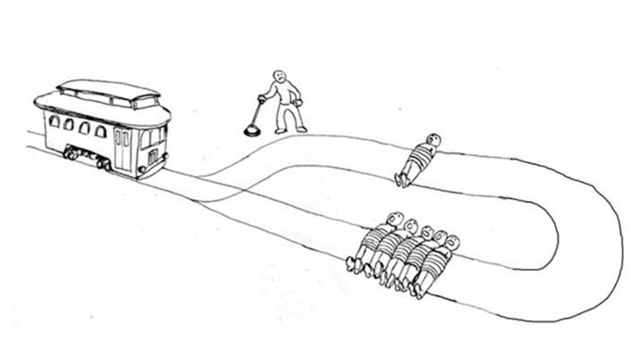Full disclosure: I am a highly biased party that has no bearing on your individual positions. This is my rant, since I am about to fail 2 term papers.
I hate philosophy. I hate ethics. I hate the goddamn trolley problem, with all its false dilemmas and no real answers, and strutting along the moral high ground, when there are TWO EASY SOLUTIONS.
Oh no! a mysterious trolley is hurdling down a nonexistent track towards people I don't know. Solution number one: I AM NOT A TROLLEY CONDUCTOR. Solution number two: I SAVE THE PEOPLE I CARE ABOUT MORE.

But seriously, this might just be me, since I have autistic friends who study/love philosophy and plan on continuing on the philosophical path of higher education, could prattle on about Socrates or Kant or Hume or whoever forever and ever. But I SIMPLY. DON'T. GET IT. Why do philosophers use so many air-headed words to say so very little. Most of my books are just empty space taken up by aristocratic armchairs who liked pontificating over the simplest quandaries. I write what I think is the most obvious response to the essay prompts, and receive a subpar grade, unlike all of my other classes, where I receive high marks. When questioned, the teacher simply replies, "You didn't pull from the material." And when I reply that I, in fact, pulled directly from the material and his very own lectures, he sighs and tells me my arguments "had no base."
Um HELLO. I'm quoting YOU. Apparently there is a guide for people on which ethical rules are just assumed and which ones are brand new revelations, but I have more of a background in East Asian philosophy, which makes a hell of a lot more sense to me. So, I truly respect the field, I do, but I struggle so very, very much with understanding what the hell this man wants from me, why I should care, and HOW TO SURVIVE PHILOSOPHY AS AN AUTIST.
HELP. IT'S SO INCREDIBLY POINTLESS. I am tempted to drive my trolley right over the cliffs of remedial education.
Love and confusion and JESUS CHRIST HOWWWW,
Max

